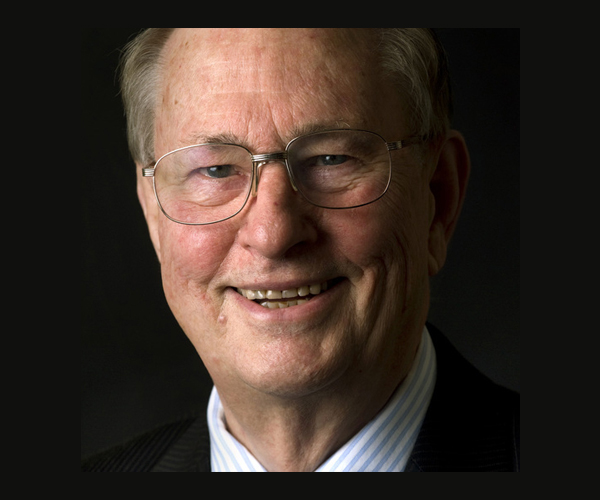Robert F. Davis Distinguished Lecture Series
This lecture series was created in 2010 to honor the accomplishments of Dr. Robert F. Davis, an internationally recognized semiconductor researcher who spent more than three decades as a faculty member at NC State Materials Science and Engineering.
Davis is the John and Clare Bertucci Distinguished Professor of Materials Science and Engineering at Carnegie Mellon University (CMU). Prior to CMU, he joined NC State in 1972 and was named the first Kobe Steel Distinguished Professor of Materials Science and Engineering at North Carolina State University from 1988 until retiring from NC State in 2004.
Davis is a member of the National Academy of Engineering and is a Fellow of the American Ceramic Society. While at NC State, he received the Alexander Quarles Holladay Medal for Excellence, and the R.J. Reynolds Tobacco Company Award for Excellence in Teaching, Research, and Extension. He holds bachelor’s and master’s degrees in ceramic engineering from NC State and Pennsylvania State University. He received his Ph.D. in materials science and engineering from the University of California at Berkeley.
Delivering the inaugural lecture on April 14, 2010, in Engineering Building 1, Dr. Robert Davis presented the talk “Solid-State Lighting: Current Status and the Impact of the Technology on Energy Utilization and Environmental Conditions.” Sharing insight into conventional lighting, the presentation illustrated how waste heat, pollution, and greenhouse gases are generated and explored the future of solid-state lighting. With the potential to become an energy-efficient lighting technology of the future, solid-state lighting requires in-depth research, engineering, and development before it can be widely deployed.

Upcoming
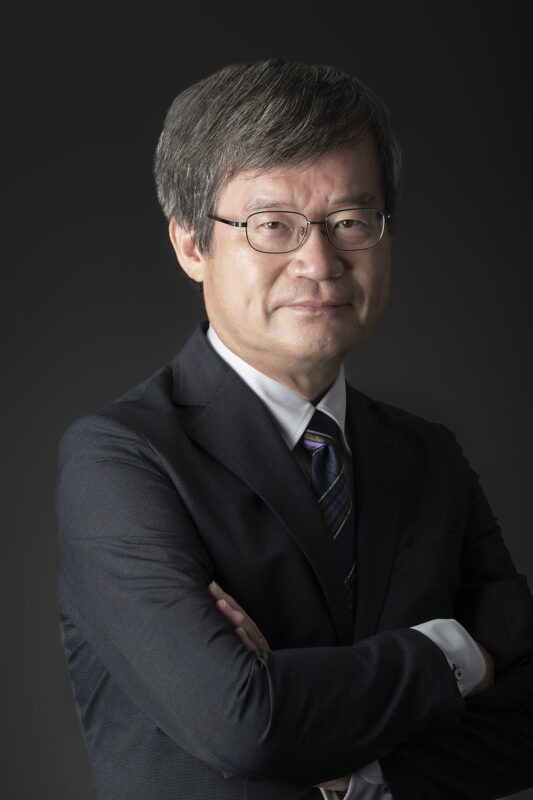
Hiroshi Amano
Nagoya University
Presenting April 4, 2024
Professor Hiroshi Amano received a Doctor of Engineering from Nagoya University. He is the Director of the Center for Integrated Research of Future Electronics and a Professor at the Institute of Materials and Systems for Sustainability at Nagoya University.
He shared the 2014 Nobel Prize in Physics with Prof. Isamu Akasaki and Prof. Shuji Nakamura “for the invention of efficient blue light-emitting diodes which has enabled bright and energy-saving white light sources.” He is currently developing technologies for the fabrication of high-efficiency power semiconductor development and new energy-saving devices at Nagoya University.
Past Presenters
Ramamoorthy Ramesh
Rice University
Presented March 31, 2023
Ramesh pursues key materials physics and technological problems in complex multifunctional oxides. Using conducting oxides, he solved the 30-year enigma of polarization fatigue in ferroelectrics. He pioneered research into manganites coining the term, Colossal Magnetoresistive (CMR) Oxides. His work on multiferroics demonstrated electric field control of ferromagnetism, a critical step towards ultralow-power memory and logic elements.
Ramesh served as the Founding Director of the successful Department of Energy SunShot Initiative in the Obama administration, envisioning and coordinating the R&D funding of the U.S. Solar Program, and spearheading the reduction in the cost of Solar Energy. He also served as the Deputy Director of Oak Ridge National Laboratory and the Associate Lab Director at LBNL. Most recently, he served on the Biden-Harris Transition Team for Energy. He is also a co-founder of Kepler Computing, which is focused on low-power computing using ferroelectrics.
As of the fall semester of 2022, Ramesh serves as the Vice President for Research at Rice University.
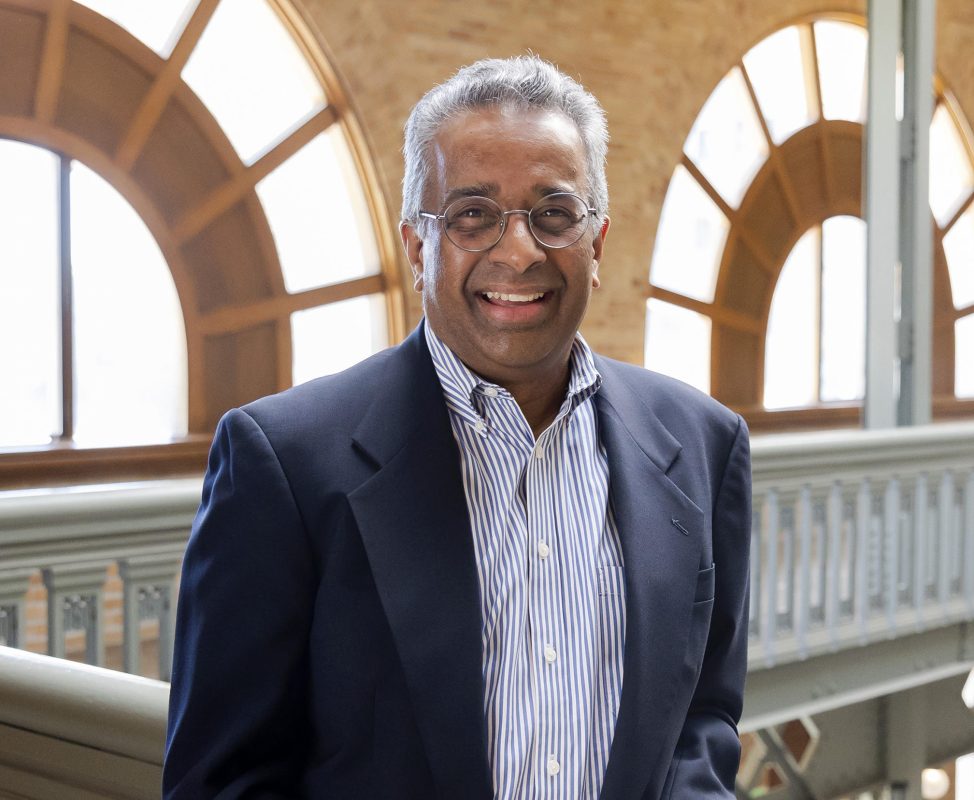

Clare P. Grey
Cambridge University
Presented October 30, 2020
Dr. Clare P. Grey, FRS is the Geoffrey Moorhouse-Gibson Professor of Chemistry at Cambridge University and Fellow of Pembroke College Cambridge. She holds a Royal Society Professorship. Her research interests include solid state NMR and diffraction-based methods to determine structure-function relationships in materials for energy storage (batteries and supercapacitors), conversion (fuel cells) and carbon capture.
Grey is the director of the EPSRC Centre for Advanced Materials for Integrated Energy Systems and member of the Expert Panel of the Faraday Institution.
Honors include the Research Award from International Battery Association, Royal Society Davy Award, Arfvedson-Schlenk-Preis award, Eastern Analytical Symposium Award for Outstanding Achievements in Magnetic Resonance, Sacconi Medal, Charles Hatchett Award, and RSC John Goodenough Award.
Grey is a foreign member of the American Academy of Arts and Sciences, and a Fellow of the Electrochemical Society and the International Society of Magnetic Resonance.
Chris G. Van de Walle
University of California, Santa Barbara
Presented March 29, 2019
Dr. Chris Van de Walle is a Distinguished Professor of Materials Science and the inaugural recipient of the Herbert Kroemer Endowed Chair in Materials Science at the University of California, Santa Barbara (UCSB). Before joining UCSB in 2004, he was a Principal Scientist at the Xerox Palo Alto Research Center.
His research interests lie in novel electronic materials, including wide-band-gap semiconductors (III-V nitrides, II-VI compounds), transparent conductors, and complex oxides; loss mechanisms in light emitters; two-dimensional conductors; quantum information science; and physics and chemistry of hydrogen interactions with solids.
Van de Walle has authored over 400 articles, holds 24 patents and has given over 200 talks at international conferences. He is a member of the National Academy of Engineering, and Fellow of APS, AVS, AAAS, MRS, and IEEE. He is a recipient of the Humboldt Award for Senior U.S. Scientist, David Adler Award from APS, Medard W. Welch Award from AVS, and TMS John Bardeen Award.
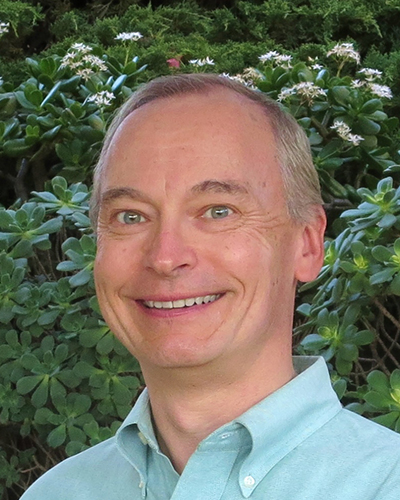

Tobin Marks
Northwestern University
Presented March 2, 2018
Dr. Tobin Marks is Ipatieff Professor of Catalytic Chemistry, Professor of Materials Science and Engineering, Professor of Applied Physics and Professor of Chemical and Biological Engineering at Northwestern University.
His recognitions include the U.S. National Medal of Science, the Spanish Principe de Asturias Prize, the MRS Von Hippel Award, the Dreyfus Prize in the Chemical Sciences, the National Academy of Sciences Award in Chemical Sciences, and the ACS Joseph Priestley Medal.
He is a member of the American, German, and Indian National Academies of Sciences, the National Academy of Engineering, the Academy of Arts and Sciences, and the National Academy of Inventors.
Marks is a Fellow of the U.K. Royal Society of Chemistry, MRS and ACS. Marks has authored more than 1,200 articles and holds 260 U.S. patents. He holds honorary doctorates from four universities.
Nava Setter
École Polytechnique Fédérale de Lausanne (Swiss Federal Institute of Technology) Lausanne, Switzerland
Presented April 7, 2017
Dr. Nava Setter is the director of the Ceramics Laboratory of EPFL, and is a professor of materials science and engineering.
Her research expertise is in functional ceramic materials with a focus on the science and engineering of ferroelectrics and piezoelectrics; materials, structures and forms by design; relating structures and properties; and the pursuit of new applications.
Setter is the author of more than 500 publications, has mentored more than 60 doctorants and post-doctoral researchers and has delivered more than 100 invited lectures.
Setter has received the American Ceramics Society Robert S. Sosman Award, the FMA International Award, the W.R. Buessem Award, the IEEE-UFFC Achievement Award, the Swiss-Korea Award and the FMA Award, among others. She is a Fellow of IEEE and member of the Swiss Academy of Technical Sciences.
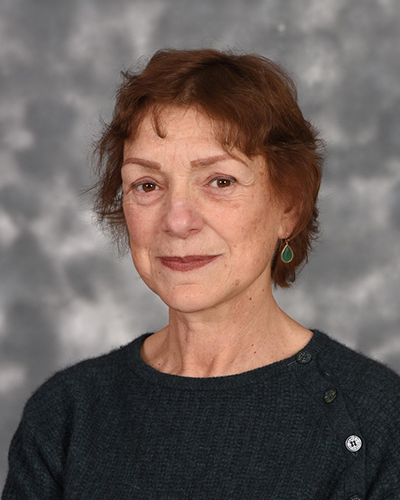
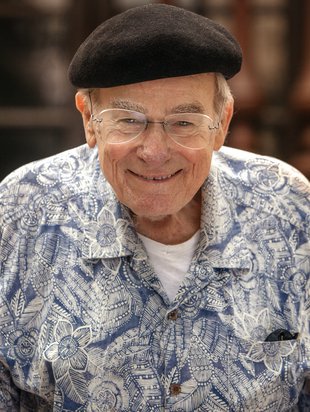
William Goddard
California Institute of Technology
Presented February 26, 2016
Prof. William Goddard is the Charles and Mary Ferkel Professor of Chemistry, Materials Science and Applied Physics at the California Institute of Technology and founding director of its Materials and Process Simulation Center.
With more than 1,140 publications and an H-index of 122, Prof. Goddard is a pioneer in developing and using hierarchical computational methods coupling electronic states of quantum mechanics with dynamics of macroscale systems, and enabling first-principles-based accuracy of realistic systems. His methods have been applied to ceramics, semiconductors, superconductors, thermoelectrics, metal alloys, polymers, proteins, nucleic acids, Pharma ligands, nanotechnology and energetic materials.
Prof. Goddard was elected a member of the National Academy of Sciences in 1984 and a Fellow of the Royal Society of Chemistry in 2008. He is also co-founder of Molecular Simulations Inc. (now Accelrys), Schrodinger Inc., Systine (which he co-founded with Robert Davis), Allozyne, AquaNano and QioMed.
William Nix
Stanford University
Presented April 15, 2015
Prof. William Nix is one of the leading figures in the study of mechanical properties of materials.
In 1968, Nix was appointed director of Stanford’s Center for Materials Research. In 1989, he was named the Lee Otterson Professor of Engineering at Stanford University. In 1991, he became Chair of the department of Materials Science and Engineering and later in 2003, professor emeritus.
He has won more than 15 awards including the Acta Materialia Gold Medal and the von Hippel Award from the Materials Research Society and is a member of the National Academies of Engineering and Sciences. He has co-authored more than 450 publications and three universities have awarded him honorary doctorates.
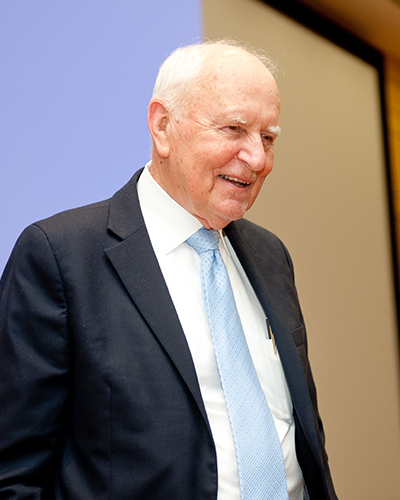
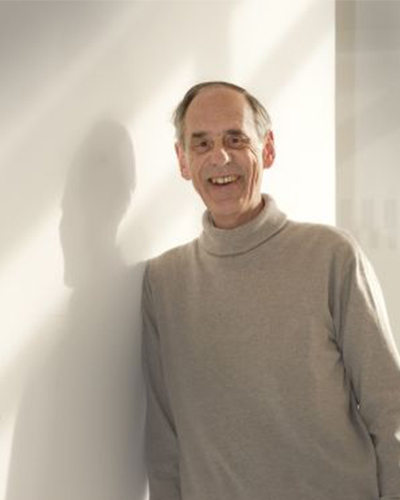
Herbert Gleiter
Nanjing University of Science and Technology, Nanjing, China
Presented April 17, 2014
Dr. Herbert Gleiter is one of the pioneers of research in nanocrystalline or nanostructured materials.
In 1973, Gleiter became Chair of Materials Science at the University of the Saarland in Germany. In 1998, he founded the Center’s Institute of Nanotechnology. In 2012, the Nanjing University of Science and Technology established the Herbert Gleiter Institute of Nanoscience and appointed him director and Zijin Professor.
Gleiter has received more than 40 awards and is a member of several national academies. His publications have been cited more than 18,000 times, and six universities have awarded him honorary doctorates.
Mildred S. Dresselhaus (1930-2017)
Massachusetts Institute of Technology
Presented February 20, 2013
Dr. Mildred S. Dresselhaus, known as “Millie” to all who have met her, was considered “The Queen of Carbon Science” for her research into the optical, conductive, and vibrational properties of carbon at the atomic level. Dresselhaus was a strong advocate for and mentor of women in science. Dresselhaus met two presidents, one of whom awarded her the highest civilian honor bestowed by the US government, the Presidential Medal of Freedom. The recognition followed her National Medal of Science, Enrico Fermi Award, Kavli Prize, and many other honors. She was the first woman at MIT to attain the rank of full-tenured professor.
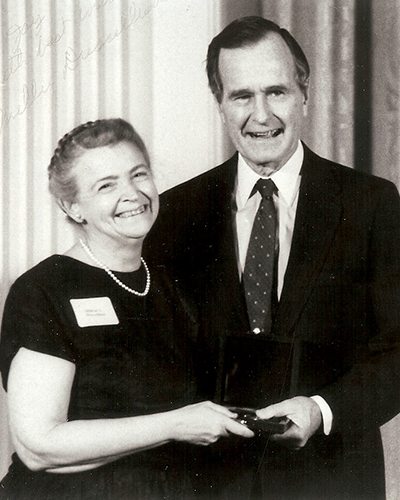
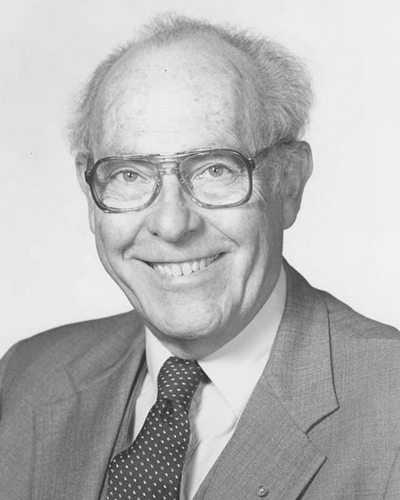
John W. Cahn (1928-2016)
National Institute of Standards and Technology
Presented May 7, 2012
Dr. John W. Cahn played a pivotal role in our understanding of solid-state thermodynamics and non-equilibrium phenomena. His research has led to the creation of new materials that can be found in cellphones, laptops and other consumer products. In 2011, he received the Kyoto Prize in Advanced Technology, Japan’s highest private award for global achievement. The Kyoto Prize is often called Japan’s Nobel Prize.
Arden Bement
Purdue University
Presented April 13, 2011
Dr. Arden L. Bement Jr. achieved international recognition as director of the National Science Foundation and director of the National Institute of Standards and Technology. He has a long and distinguished career with Purdue University, having served as the Basil S. Turner Distinguished Professor of Electroceramics, the David A. Ross Distinguished Professor of Nuclear Engineering, the Chief Global Affairs Officer, and the inaugural director of the Global Policy Research Institute.
Bement received his doctoral degree in metallurgical engineering from the University of Michigan. He is a member of the National Academy of Engineering and a fellow in the American Academy of Arts and Sciences.
In 2015, the Arden L. Bement Jr. Award was established at Purdue University by Distinguished Professor Emeritus Arden Bement and his wife, Mrs. Louise Bement, to annually recognize a Purdue faculty member for recent outstanding accomplishments in pure and applied sciences and engineering.
